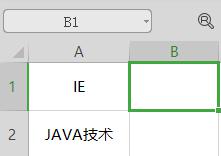使用CompletableFuture抛出检查异常
包含多个有关将检查的异常与混合使用的问题CompletableFuture。
虽然一些答案暗示使用CompletableFuture.completeExceptionally()其方法会导致难以阅读的用户代码。
我将使用此空间来提供可提高可读性的替代解决方案。
这使我们能够提供更广泛地不扩展到lambda表达式的解决方案。
回答:
给定Completions实用程序类(下面提供),用户可以无缝地抛出检查异常:
public CompletionStage<String> readLine(){
return Completions.supplyAsync(() ->
{
try (BufferedReader br = new BufferedReader(new FileReader("test.txt")))
{
return br.readLine();
}
});
}
由lambda引发的任何异常(是否经过检查)都将包装在中CompletionException,这与CompletableFuture的非检查异常行为相同。
对于诸如此类的中间步骤,事情会变得更糟,thenApply()但这还不是世界末日:
public CompletionStage<String> transformLine(){
return readLine().thenApply(line ->
Completions.wrapExceptions(() ->
{
if (line.contains("%"))
throw new IOException("Lines may not contain '%': " + line);
return "transformed: " + line;
}));
}
这里是Completions实用程序类的一些方法。您可以CompletableFuture通过这种方式包装其他方法。
/** * Helper functions for {@code CompletionStage}.
*
* @author Gili Tzabari
*/
public final class Completions
{
/**
* Returns a {@code CompletionStage} that is completed with the value or exception of the {@code CompletionStage}
* returned by {@code callable} using the supplied {@code executor}. If {@code callable} throws an exception the
* returned {@code CompletionStage} is completed with it.
*
* @param <T> the type of value returned by {@code callable}
* @param callable returns a value
* @param executor the executor that will run {@code callable}
* @return the value returned by {@code callable}
*/
public static <T> CompletionStage<T> supplyAsync(Callable<T> callable, Executor executor)
{
return CompletableFuture.supplyAsync(() -> wrapExceptions(callable), executor);
}
/**
* Wraps or replaces exceptions thrown by an operation with {@code CompletionException}.
* <p>
* If the exception is designed to wrap other exceptions, such as {@code ExecutionException}, its underlying cause is wrapped; otherwise the
* top-level exception is wrapped.
*
* @param <T> the type of value returned by the callable
* @param callable an operation that returns a value
* @return the value returned by the callable
* @throws CompletionException if the callable throws any exceptions
*/
public static <T> T wrapExceptions(Callable<T> callable)
{
try
{
return callable.call();
}
catch (CompletionException e)
{
// Avoid wrapping
throw e;
}
catch (ExecutionException e)
{
throw new CompletionException(e.getCause());
}
catch (Throwable e)
{
throw new CompletionException(e);
}
}
/**
* Returns a {@code CompletionStage} that is completed with the value or exception of the {@code CompletionStage}
* returned by {@code callable} using the default executor. If {@code callable} throws an exception the returned
* {@code CompletionStage} is completed with it.
*
* @param <T> the type of value returned by the {@code callable}
* @param callable returns a value
* @return the value returned by {@code callable}
*/
public static <T> CompletionStage<T> supplyAsync(Callable<T> callable)
{
return CompletableFuture.supplyAsync(() -> wrapExceptions(callable));
}
/**
* Prevent construction.
*/
private Completions()
{}
}
以上是 使用CompletableFuture抛出检查异常 的全部内容, 来源链接: utcz.com/qa/422727.html



